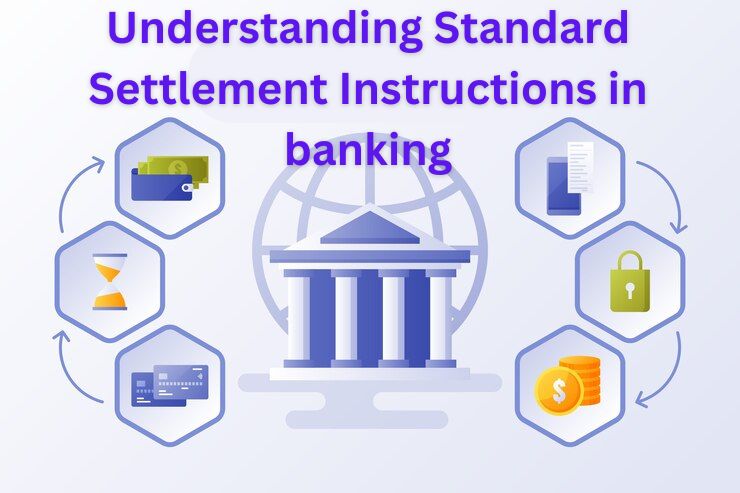
In the fast-paced world of banking, efficient and accurate transaction processing is crucial. Standard Settlement Instructions in banking play a vital role in ensuring smooth financial transactions between financial institutions. In this article, we will delve into the best practices for SSIs in banking, exploring their significance, implementation, and the key factors that contribute to their effectiveness.
What are Standard Settlement Instructions (SSIs)?
Standard Settlement Instructions, commonly referred to as SSIs, are a set of instructions that facilitate the settlement of financial transactions, particularly in the realm of securities trading. These instructions provide precise details about the account, intermediary bank, and other relevant information required to complete a transaction successfully.
Understanding Standard Settlement Instructions in banking
Standard Settlement Instructions in banking, commonly referred to as SSIs, are essential components of the financial transaction process. They encompass a set of globally agreed-upon instructions that facilitate the settlement of financial transactions. These instructions provide vital information, including account details, the intermediary bank, and the specific settlement timeline.
Importance of SSIs in Banking
SSIs serve as a critical link in the global financial network, enabling seamless communication between various participants, including banks, brokerages, custodians, and clearinghouses. By standardizing the settlement process, SSIs help reduce errors, mitigate risks, and enhance efficiency in cross-border transactions.
Key Elements of Effective SSIs
To ensure the effectiveness of SSIs, several key elements should be considered during their creation and implementation:
Accuracy and Completeness
SSIs must be accurate and comprehensive, leaving no room for ambiguity or misinterpretation. All relevant information, such as account details, currency codes, and intermediary bank information, should be included with utmost precision. Any errors or omissions in the SSIs can lead to delays, failed transactions, and financial losses.
Consistency and Standardization
Consistency and standardization are essential when creating SSIs. A standardized format helps streamline communication and reduces the likelihood of errors caused by variations in terminology or formatting. Adhering to established industry standards and guidelines ensures compatibility and interoperability across different systems and institutions.
Timeliness and Maintenance
SSIs should be regularly reviewed and updated to reflect any changes in account information, banking regulations, or market practices. Timely maintenance ensures that the instructions remain accurate and up to date, avoiding disruptions in settlement processes. Institutions should establish robust processes to manage and communicate changes in SSIs effectively.
Communication and Verification
Effective communication is vital in the successful implementation of SSIs. All relevant parties involved in the settlement process, including the sending and receiving banks, custodians, and brokers, must receive and verify the SSIs. Regular communication channels should be established to address any queries or discrepancies promptly.
Compliance and Security
Compliance with regulatory requirements and adherence to security protocols are paramount in the realm of SSIs. Financial institutions must ensure that the transmission and storage of SSIs adhere to data privacy and security standards. Implementing strong encryption and authentication mechanisms can safeguard sensitive information and protect against unauthorized access.

Implementing Best Practices for SSIs
To optimize the use of SSIs and achieve the desired outcomes, financial institutions should consider the following best practices:
Centralized SSI Repository
Maintaining a centralized repository for SSIs can streamline the dissemination of accurate and up-to-date instructions. This repository should be easily accessible to all relevant stakeholders, facilitating efficient information sharing and reducing the risk of outdated or conflicting instructions.
Automated SSI Validation
Leveraging automation tools and technologies can significantly enhance the validation process for SSIs. Automated checks can verify the accuracy, completeness, and compliance of the instructions, minimizing the chances of manual errors. Such validation systems can provide real-time feedback and alerts for any discrepancies or non-compliance.
SSI Workflow Management
Implementing a structured workflow management system can help track the progress of SSIs, ensuring that they are processed and verified within the defined timelines. Workflow automation streamlines the approval and verification processes, reducing the risk of delays or bottlenecks in settlement operations.
Periodic SSI Audits
Regular audits of SSIs are crucial to maintain their integrity and effectiveness. Internal or external audits can identify any gaps or inconsistencies in the instructions, enabling corrective actions to be taken promptly. Audits also help in evaluating the compliance of SSIs with regulatory requirements and industry standards.
Continuous Process Improvement
Financial institutions should foster a culture of continuous process improvement when it comes to SSIs. Regularly reviewing and analyzing settlement data, identifying pain points, and seeking feedback from stakeholders can help identify areas for enhancement. Implementing process improvements ensures ongoing efficiency gains and better outcomes.

Advantages of Implementing Effective SSIs
Implementing these best practices for Standard Settlement Instructions offers significant advantages to banks and financial institutions:
Operational Efficiency: Accurate and up-to-date SSIs streamline transaction processing, reducing manual efforts and operational delays.
Cost Savings: Efficient settlement processes resulting from precise SSIs lead to cost savings for both banks and customers.
Enhanced Customer Experience: Prompt and error-free settlements enhance the overall customer experience, building trust and satisfaction.
Reduced Risks: Accurate SSIs minimize the risks of failed transactions, ultimately contributing to a more secure financial environment.
Competitive Edge: By optimizing settlement processes through effective SSIs, banks can gain a competitive advantage in the market.
You can also read : Balancing Work-Life: Embracing the Duality of Success and Well-Being
Standard Settlement Instructions (SSIs) are an integral part of the banking industry, enabling seamless and secure transaction settlement. By adhering to best practices in creating, implementing, and maintaining SSIs, financial institutions can significantly enhance the efficiency, accuracy, and compliance of their settlement operations. Embracing automation, standardization, and robust communication channels will contribute to successful transaction processing and strengthen the overall integrity of the global financial system.
